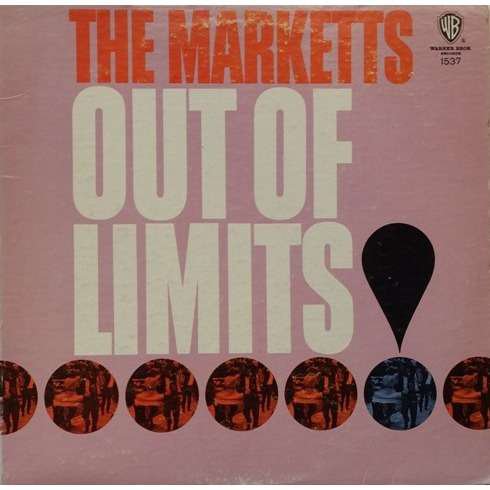Os 10 melhores álbuns de surf rock para ter em vinil
Poucos gêneros musicais carregam tanto romantismo e nostalgia quanto o surf rock dos anos 1960.
nNascida do boom do rock & roll no final dos anos 50, a música surf representa um tempo mais inocente na América; quando as praias eram limpas, a água era clara, e o gênero e o esporte tiveram o prazer de amadurecer juntos.
nNesta lista que é tudo, menos abrangente, daremos uma olhada em um punhado de grupos de surf iniciais e tentaremos restringir um ponto de partida para apreciar o gênero.
Okay, let’s just get this one out of the way. The Beach Boys are universally regarded as the most influential surf group to emerge from the 1960s West Coast scene.
Signed by Capitol Records in July of 1962, Brian Wilson and Co. came out of the gates swinging on their debut album, writing and recording one of the greatest surf anthems of all time, the title track.
Although not without its misses ("County Fair," "Ten Little Indians," and "Chug-A-Lug" being among them), this LP showcases the band’s ability to meld traditional surf instrumentals with vocal pop, and the end result is groundbreaking.
Dick Dale is the king of the surf guitar, and there is no disputing this statement.
In his esteemed 60+ year career, Dale has released what is widely regarded as the first ever surf rock instrumental (1961’s Let’s Go Trippin), pioneered the “wet” guitar sound by using heavy reverb effects, worked with Fender Guitars founder Leo Fender to produce the first ever 100 watt guitar amplifier, and founded his own record label.
Dale’s song Miserlou often tops various “Greatest Surf Songs Ever Recorded” lists, and he enjoyed career resurgence in 1994 when Quentin Tarantino featured the song in the opening credits of Pulp Fiction.
This, Dale’s debut LP, perfectly balances his signature manic guitar instros with slower-paced, doo-wop inspired vocal ballads. Dick Dale is still touring at the age of 79, and from what I hear, he can still get after it pretty well.
The Surfaris were four high school students from landlocked Glendora, CA, but that didn’t stop them from writing and recording one of the most iconic surf songs known to man.
Wipe Out (as a single), sold over one million copies, and was certified gold. It also featured an intro unlike any heard before, with a band member’s father breaking an ironing board to simulate the sound of a surfboard cracking, and the band’s then-manager manically screaming the words “HAHAHAHAH WIIIIPE OUT!!!”
That’s not even taking into account the drum part, which can turn even the most reserved individual into an air-drum god.
"Surfer Joe" is the only track on this 12-song LP that features vocals. Other than that, it’s all twangin’ guitars and honkin’ sax.
Located at roughly the midway point between Los Angeles and San Francisco, right off the 101 freeway, sits the quaint little town of San Luis Obispo, CA. Although not known for its proficient musical output, SLO can boast being the home of our next seminal surf group, the Sentinals.
Big Surf features the band’s sole hit “Latin’ia;” which incorporates Latin rhythms and guitar lines from bandleader Tommy Nunes, a Latino surf rock pioneer.
The band’s debut LP on surf giant Del-Fi Records, is all killer and no filler.
Be sure to stick around for the album’s bummer of a closing song “Surfin’ Tragedy” where the protagonist “waves to his girl” before he is “killed at surfin’” while “hot-doggin’” …OUCH!!!
If you’re still reading this list and decide to go out and buy only one album covered here, please let it be the Sandals’ masterful ode to the beach, The Endless Summer.
This record is actually a soundtrack to the film of the same name, and although very much appreciated in the vinyl-collecting community, the band as a whole, is often overlooked as surf rock royalty.
Beautifully understated, with lush vocal harmonies and impeccable instrumental delivery, I have no idea how the Sandals (also know as The Sandells), did not go on to achieve a wider amount of mainstream success.
Who says a great ‘60s surf band has to be from the West Coast?
The Trashmen, who are famous (or infamous, depending on how you look at it), for their smash hit “Surfin’ Bird” hailed from the not-so-balmy city Minneapolis, Minnesota.
Their Surfin’ Bird LP was released in 1962 on the regional Garrett label, and not only does it contain one of the most covered and referenced surf songs ever recorded (the title track), the rest of the album is actually pretty rad too, with competent covers of “Miserlou,” Buddy Holly’s “It’s So Easy,” and the Motown classic “Money (That’s What I Want).”
Original copies of this record go for big money, but you can snag a repress from Sundazed Records on the cheap.
The Marketts were, essentially, a group of Hollywood session musicians employed to capitalize on the trend of surf music.
They released three pretty forgettable full-length records, starting in 1962, before hitting it big with 1964’s Out Of Limits.
This record incorporates outer space themes with surf guitar sounds, and was 30 years ahead of the first Man Or Astro-Man? release (which takes many cues from this set of songs).
Upon first listen Out Of Limits may be polarizing to some, as it is not ‘60s surf rock in its purest form. The record does however stand alone as a Hollywood interpretation of what was going on at the time, and challenges the listener with far out sounds, impeccable instrumentation, and copious amounts of French horn.
As far as seminal early 60s surf songs go, the Chantays’ “Pipeline” ranks right up there with “Miserlou,” “Surfin’ Safari,” and “Wipe Out.”
This high school band formed in Santa Ana, California in 1961, and was soon rocketing up the national charts with their smash surf hit.
The boys managed to squeeze a few international tours out of the song, and even performed on The Lawrence Welk Show. Pretty heady stuff for a bunch of teenagers!
This LP is full of classic surf instros, with the patented reverb-drenched “wet” sound prominent throughout.
The Ventures were one of the most popular instrumental bands to pick up Mosrite guitars, and leaving them out of this list would probably result in many a nasty comments.
Recording and releasing over 200 (!) albums, the band is unmatched in recorded output and sheer technical ability. These guys could do everything from Christmas music to Country & Western, and at a clip that would make even Elvis Presley’s head spin.
This particular release finds The Ventures honing their surf chops, and for a bunch of probably non-surfers, this record sounds pretty authentic. Standout tracks are “Cruncher,” “Party In Laguna,” and “Ninth Wave.”

I always like to include at least one wild card in these lists for all the heads out there, and it doesn’t get much more wild than the soundtrack to Hal Jepsen’s surf film A Sea For Yourself.
Although not technically a 1960s album (it was released in 1973), this 2LP is so diverse in its sound that I had to throw it some love. The tracks encompass everything from Rhodes-heavy jazz funk to outsider singer/songwriter psych folk.
Hal Jepsen was a California-born surfer who made three other cult classic surf films: Cosmic Children (1973), Super Session (1975), and We Got Surf (1981). Although I have yet to hear the soundtracks to these other films, I’m going to go out on a limb and claim A Sea For Yourself as the best.
Copies of this record are not cheap, but it’s a must-have for the surf rock completest and can be found on second hand record selling sites like Discogs.
Jeffrey David Harvey is a record collector/archivist/music historian who focuses most of his time looking for lost and forgotten music at thrift stores, garage sales, and junk shops. You can check out his latest finds at on his Twitter and Instagram. He also runs lostrpm.blogspot.com for those who prefer nostalgia in their internet surfing.
Related Articles
Junte-se ao Clube!
Junte-se agora, a partir de 44 $Desconto exclusivo de 15% para professores, estudantes, militares, profissionais de saúde & primeiros socorristas - Verifique-se!





















